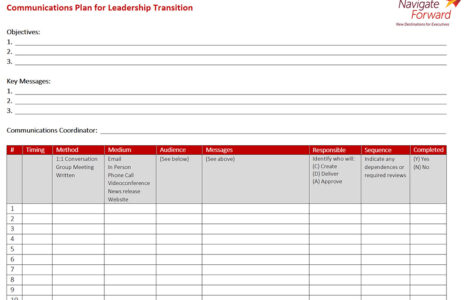For talented senior leaders, board service is a natural career progression. Some executives add board of director roles while maintaining working; others look forward to board service as the capstone to a successful corporate career.
While large, publicly traded boards make headlines, there are more opportunities with privately held organizations. What’s important is understanding the nuances that make private companies different from their counterparts, and knowing how to navigate these elements both as a candidate and as a serving board member.
Your Stakeholders Are Always in the Room
There’s tremendous variety in privately held companies, and understanding your options helps you choose the right fit for your skills and interests. In addition to size and industry, the company’s operating structure will influence the board experience.
Private companies today can be:
- Founder-led or family owned
- Backed by private equity firms
- Large, complex organizations with highly developed governance systems
Structure and maturity will also determine the company’s lens on strategy. A longstanding family-owned company, for example, will be more likely to address succession planning and create a vision that spans 5-10 years; a private equity firm, on the other hand, may have more immediacy in mind when planning or anticipating returns. In general, privately held companies tend to take a longer term view of success than their publicly traded counterparts.
Reporting and regulatory requirements present another angle. It’s a common misconception that privately held companies are immune from the rigorous financial reporting mandated for their public counterparts. While Sarbanes-Oxley (SOX) may not apply, private companies still need board members with a thorough knowledge of financial management and good governance. Merger and acquisition expertise is also in demand. Regulated industries such as healthcare, insurance and financial services have reporting and compliance needs just as robust as any publicly traded firm.
Stakeholders represent another distinction. With public companies, shareholders are central to the board of directors’ mandate, but rarely participating in the boardroom. By contrast, at private companies your key stakeholders will be seated at the table with you. They’ll hold leadership positions in the organization and even other board of director seats. This creates an immediate feedback loop where strong working relationships and the ability to communicate constructively become critical.
Activate Your Network to Land the Role
Exceling on a board takes decidedly different skillsets than most senior leaders use in their day-to-day corporate roles. Private companies need board members willing to take accountability, help shape strategy, support team building, assist with succession planning, and manage and mitigate risk.
However, they’re looking for executives who can translate their experience from hands-on management to thought leadership and oversight.
Follow these best practices when seeking a private company board seat:
- Articulate your value. It takes a clear pivot to move from corporate leadership to board work, so a resume won’t always cut it. The language you use matters and highlighting thought leadership is important. Work on a clear message of your value as a candidate. Then, develop a board bio that speaks to your governance and oversight abilities and puts your background in the context of board work.
- Activate your network. Get the word out through networking and one-on-one meetings. Leverage LinkedIn by repositioning your profile to demonstrate governance skills and thought leadership in your industry or area of expertise.
- Show your passion. Once you’ve narrowed your list of opportunities, be prepared to speak to your interest. Your potential colleagues want to understand the energy and conviction you’ll bring to the table.
- Do your due diligence. Use your network to dig into all aspects of your potential private company. Alignment on culture, values and vision is crucial. Make sure you understand the owners’ goals. Aim for conversations with other board members, past employees and current management for a well-rounded perspective.
Apply Good Governance to Succeed
As you begin your new role, make time for these essentials:
- Focus on oversight. Board members should provide resources, coaching and support, but take a hands-off role when it comes to actual management. In private companies, particularly smaller organizations, maintaining those boundaries can sometimes prove challenging. Be willing to step back and have honest conversations in order to keep your governance role clear.
- Clarify expectations. One of the top priorities for private company boards is helping the organization identify strategic goals, which may not be obvious or well-defined. Here, private company boards add tremendous value by bringing specialized skills and outside experience to the table to complement what exists within the organization.
Private company board service will be both demanding and rewarding. It offers leaders a new way to leverage your skills and value. Navigate Forward’s Board Readiness service helps position you to land the right role in less time.
Another great resource that we recommend is the Private Directors Association. This nationwide group operates chapters around the country focused exclusively on helping executives find and excel in board of director roles with privately held companies.



